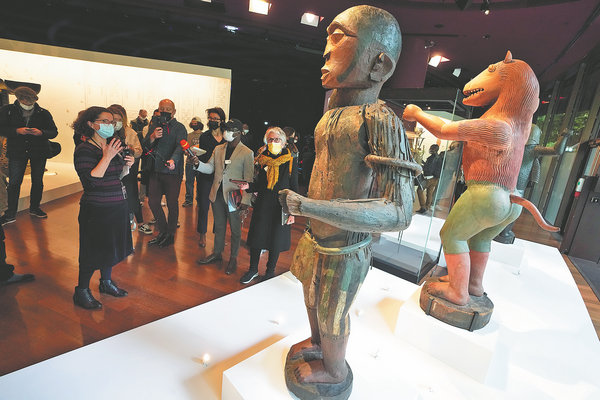

Treasures looted by colonial invaders are finally being returned to their rightful owners
For many decades countries around the world as disparate as Greece, Iraq and Nigeria have pleaded for treasured artifacts looted from them to be returned, and Western governments and museums have finally begun to listen.
In December last year Germany handed 20 Benin Bronzes, priceless artifacts that were looted in a violent raid more than a century ago, to Nigeria. The move was widely seen as an important symbolic gesture, with many more of the artifacts expected to be repatriated followed by an agreement signed last July between the two countries to transfer more than 1,100 bronzes in German museums to Nigeria.
Nigeria has been calling for the objects' return for several decades, and the deal is the largest yet.
Annalena Baerbock, Germany's foreign minister, said during the handover ceremony in Abuja that the moment is historic for her country. "We are facing up to our history of colonialism."
Repatriation of such artifacts is just the first step for European countries in facing up to their sometimes dark colonial past.
The Benin Bronzes are sculptures and plaques looted from the ancient Kingdom of Benin — now southern Nigeria, not the modern nation of Benin — by British soldiers in 1897. The city was burnt down, and the British Admiralty auctioned the booty, more than 2,000 artworks, ostensibly to cover the cost of the expedition.
Some were bought by German collectors. The British Museum got about 40 percent of the haul. All the artifacts are now scattered in museums and private collections around the world.
The repatriation had seemed far-fetched as recently as seven years ago. As in other European countries, the subject of restitution had been largely ignored in Germany until recently.
In 2021 France handed 26 artifacts back to Benin, and the Metropolitan Museum of Art in New York struck a deal to transfer ownership of dozens of sculptures to Greece. Iraq has reclaimed 17,000 looted artifacts from the United States.